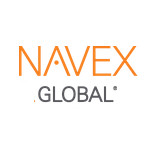 Virtual data rooms have led to a paradigm shift in how communication between parties is done, according to Firmex, which provides a cloud-based solution for sharing large volumes of confidential documents. This online repository of information has been efficiently used by various enterprises and individuals to store their data and later to distribute it. Various providers have come up with their virtual data rooms which people can use to access multiple services.
Virtual data rooms have led to a paradigm shift in how communication between parties is done, according to Firmex, which provides a cloud-based solution for sharing large volumes of confidential documents. This online repository of information has been efficiently used by various enterprises and individuals to store their data and later to distribute it. Various providers have come up with their virtual data rooms which people can use to access multiple services.
One area where virtual data rooms are increasingly becoming popular is in litigation. Lawyers are taking advantage of this technology to be able to communicate not only with their clients but also counsel they work together with, experts and counsel on the opposing side. It has promoted due diligence.
Firmex provides the following information:
How is Virtual Data Rooms used in litigationBefore the invention of the virtual data room, litigators would use the conventional physical data room. However, the many shortcomings and technological advancement led to the invention of the virtual data rooms which are more efficient.
On a frequent basis, lawyers are involved in exchanging and sharing a lot of documents as that is the most used basis of communication. Therefore, it is unsurprising that there are many ways litigators use the virtual data rooms. Some of them include;
1. Communication in a class action lawsuit.
These types of lawsuits differ from the traditional suit in that in this kind; a plaintiff brings a matter before a court on behalf of a group or class of people who are absent from the court proceedings. You can only imagine the amount of documentation present in this type of case. It is a lot. However, with virtual data rooms storage and sharing of this documents has been made easy.
With this tool, people can be able to set up profiles which they can save their information or exchange information with everyone within that group. This way, instantaneous communication between the plaintiffs and counsels is achieved.
2. Sharing of documents following a subpoena request
When the opposing party acquires a subpoena for documents from the court, this might mean the counsels have to go searching for the documents. Also once they find them, they have to put them in order so that they are as per the subpoena.
When a firm uses virtual data room, the process will become relatively faster. Virtual data room tools will allow one to store documents. They can then be easily be retrieved or accessed when need be. Also, given that the subpoenas will be uploaded this tool, litigators can therefore easily copy and paste the required documents onto the subpoena.
3. Easy organization and derivability of documents
As much as having a proper filing system is good, it might not be easy to find use and share documents. For instance, if you want to analyze documented evidence with co-counsels or witnesses, it is easier when you have a virtual data roaming system. You can quickly go through all the documents without having to leave a mess.
What are some of the benefits of using virtual data room?
As already stated, it provides a more organized system through which attorneys can share and store documents with other people he is working with. Other than that, other benefits include;
• It is cost efficient
With virtual data rooms, there is less of everything which was inconveniencing. There will be fewer people working on documents and sharing also will not be a long process. This saves the firm a lot of money.
• Security
Virtual data rooms provide a safe digital tool to share information. Given there is the lawyer-client confidentiality, it is paramount to make sure that a client’s information does not get to unauthorized people. Systems such as emails can easily be hacked thus not the best way to share information. However, virtual data rooms have made security a top priority. They have measures such as multi-factor authentication and allowing users to be able to restrict the people who can access specific files.
• Convenience
Who said a counsel has to be at the office for them to be able to go through documents as they prepare their case? Virtual data rooms allow you to access information on the go regardless of where you are. The same convenience is seen in the ease to share information with colleagues.
To conclude, virtual data rooms have entirely changed how information is handled in litigation. It has resulted in a lot of ease and convenience. Choosing which virtual data room to go by might be hard. However, you should consider factors such as how good their security is, the different tools that come with and the costs involved. That will help you make the right decisions.






